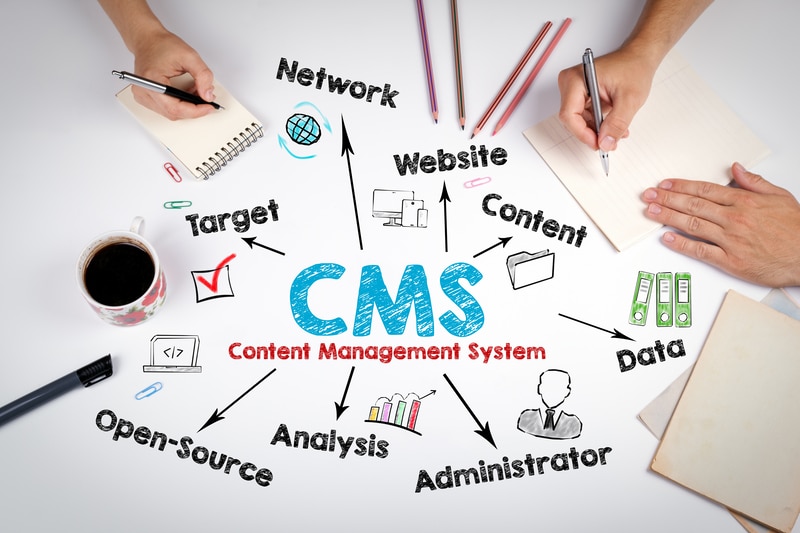
Get 'The Self-Taught Computer Scientist' (worth $19.99) for FREE
Fresh out of college and with just a year of self-study behind him, Cory Althoff was offered a dream first job as a software engineer for a well-known tech company, but he quickly found himself overwhelmed by the amount of things he needed to know, but hadn’t learned yet. This experience combined with his personal journey learning to program inspired his widely praised guide, The Self-Taught Programmer.
Now Cory's back with another guide for the self-taught community of learners focusing on the foundations of computer science.

7 steps for managing data in the AI era
AI will generate 10 percent of all new data in 2025, according to Gartner. This statistic has significant ramifications for business leaders in the digital age.
First, it hints at another substantial development: Overall data generation will skyrocket alongside advanced AI and machine learning (ML) tools. Statista predicts that humans will create, process and consume 180 zettabytes of data in 2025, up nearly 300 percent since 2020. This prediction foreshadows worsening data sprawl, a problem wherein organizations have more data than they can process or understand.

Looking To boost profit margins with smart promotional tactics? What you should consider
Businesses are constantly seeking ways to enhance their profit margins, and smart promotional tactics can play a crucial role in achieving this goal. Promotions are not merely about attracting attention; they are strategic tools that, when executed effectively, can drive sales, increase customer loyalty, and strengthen brand presence.
By understanding key elements such as data utilization, compelling offers, and strategic timing, businesses can optimize their promotional efforts. This article explores essential considerations for leveraging data, crafting attractive incentives, and timing promotions to maximize impact. Through thoughtful planning and execution, businesses can turn promotional activities into powerful drivers of profit and growth.

AI and dataset poisoning -- are organizations prepared for the latest cyberthreats? [Q&A]
Although governments are issuing new guidelines for businesses to toughen up their cyber protection, cyberattacks remain a major risk, only growing in sophistication with advancements in AI.
With the continued integration of AI into systems, recognizing the threat that dataset poisoning presents is also an emerging concern. We spoke to Andy Swift, cyber security assurance technical director at Six Degrees to discuss the latest threats and how businesses can respond.

Balancing security and autonomy: Strategies for CISOs in the cloud era
Maintaining a secure cloud environment is one of the most important responsibilities of any CISO today, given that over 50 percent of all cyberattacks now originate in the cloud. However, this is a daunting task, as security must now be balanced against other priorities such as maintaining agile operations and the need to innovate.
Organizations today are racing to accelerate their cloud adoption due to the need for greater scalability and cost-efficiency. It has, therefore, become a critical business strategy to ensure efficiency, accessibility, and sustainability in operations. As a result, cloud investments are soaring across the board. Gartner predicts that end-user spending on public cloud services will reach $679 billion by the end of this year and exceed $1 trillion by 2027.

AI-powered data management: Navigating data complexity in clinical trials
The data flood gates have opened wide for clinical trial research. In fact, the amount of data gathered may be more akin to a tsunami or a monsoon. For decades, researchers struggled with a lack of data available in clinical trials; however, they may have received more than they asked for. Research shows that the biopharmaceutical industry generates up to a trillion gigabytes of data annually and clinical trials, one of the principal contributors to these data points, generate an average of up to 3 million data points per trial. This influx of sources can make it challenging to discern relevant from superfluous information, complicating analysis and delaying critical decision-making.
An increase in decentralization paired with expanded collection methods in clinical trials have increased access to and accumulation of data. Information gathered from remote monitoring devices, electronic health records (EHRs), laboratory tests, surveys and questionnaires and third-party databases, all contribute to the data challenge in clinical trials. In reality, the number of touchpoints across clinical trials, from sponsors to clinical research organizations (CROs) to site staff, combined with the complexity and disparity of data sources leads to challenges in ensuring data quality.

Overcoming real-time data integration challenges to optimize for surgical capacity and better care
In the healthcare industry, surgical capacity management is one of the biggest issues organizations face. Hospitals and surgery centers must be efficient in handling their resources. The margins are too small for waste, and there are too many patients in need of care. Data, particularly real-time data, is an essential asset. But it is only useful if the pieces fit together, solving a puzzle of coordinating schedules, operating room availability, and resource allocation, while ensuring immediate access to patient data for perioperative teams.
Data management demands are significant, complex, and dynamic. Because each patient is unique, anything can happen in an operating room (OR) at any moment. As such, real-time data capture is crucial for surgical workflows. When surgical teams have all the information they need in real time, they can make rapid decisions that not only maximize OR utilization and minimize delays but also enhance overall patient care and safety.

Harnessing the value of data with data monetization
Businesses around the globe are using new technologies to change the world. But this wouldn’t be possible without the use of sensitive data such as Personal Identifiable Information (PII) and Protected Health Information (PHI) to drive advancements in personalization and sophistication. However, if companies are using data that typically is associated with medical records and insurance claims, this bodes the question, is personal data secure?
It is possible to balance data privacy with gleaning the value of the information through a data modernization strategy that enhances and accelerates digital transformation efforts.

Is synthetic data the solution to data privacy challenges?
Synthetic data is artificial material that was not generated by natural life events. As such, it can be created by computer programs and AI tools that use different techniques, with generative adversarial networks and diffusion models being among the most popular and effective today. Synthetic data may come in many forms, but images and textual information are currently the most feasible options.
If you are interested in AI and ML developments, you have probably heard the term already -- “sanitized” synthetic data is a recent hype in the AI training field that, it is believed, might solve pressing data privacy and ownership challenges posed by real data. However, it all sounds like sunshine and rainbows only until you stop and consider the fact that AI algorithms used to generate synthetic data still need to be trained on real data -- the very obstacle they offer to remove.

Why human risk management is key to data protection
Personal data is constantly being processed and transferred in numerous ways -- whether in healthcare applications, store loyalty programs, during purchases or while browsing online. With such a vast amount of personal data in circulation, the likelihood of errors occurring is heightened.
It feels like almost every day we hear a story of another company being breached -- with data being stolen by cybercriminals looking to steal an individual’s identity, access accounts or commit fraud. Things are also getting easier for cybercriminals, thanks to technology advancements like generative AI assisting with more convincing phishing emails and deepfake content.

Supplier data is foundational -- and so is a supplier data foundation
Supplier data enables procurement leaders to understand their organization's performance more deeply, predict market opportunities and negotiate advantageous supplier contracts. When market conditions are favorable, these benefits provide a keen competitive advantage; during economic turbulence, they're a must-have for business continuity -- all in all, data is the bedrock of procurement decisions.
But the necessity of good supplier data isn’t breaking news. Rather, the advent of innovative technologies, including generative AI and large-language models (LLMs), has emphasized the importance of data hygiene across the enterprise. Case in point: In 2024, 43 percent of data leaders say their organization has adopted a “data and analytics culture” -- up from just 21 percent last year.

Why culture could be the missing link in private equity's data challenges
Available data for alternative assets is expanding at top speed, handing managers a goldmine of information and arming them to make savvy investment moves and fine-tune operational efficiencies. Ensuring transparency, quality, and data accessibility has never been more important for general partners (GPs).
Yet the tidal wave of data that organizations are handling poses a significant challenge for private equity firms. Many find themselves struggling to consolidate large volumes of data from disparate, siloed sources.

CMS challenges prevent organizations unlocking their data
New research finds that 84 percent of organizations believe their existing content management system (CMS) is preventing them from unlocking full value from their data and content.
The study, from headless CMS company Hygraph, surveyed 400 professionals in product and engineering roles across the US, UK, and Germany, and finds 92 percent of organizations say their content and data sources are currently siloed, with 38 percent describing it as 'very siloed'. This means the work required to integrate all these sources is both time-consuming and expensive.

How to reduce generative AI's risks to data [Q&A]
Generative AI models like ChatGPT are creating a lot of enthusiasm for what they can do for businesses, but they are generating just as much fear over what can go wrong with the data they handle. There is a lack of trust between large companies that have the data and the AI startups that want to use them.
What can we expect to see in the near future? We spoke with Katy Salamati, senior manager of the advanced analytics lifecycle at SAS, to find out.

How to build a successful data lakehouse strategy [Q&A]
The data lakehouse has captured the imagination of modern enterprises looking to streamline their architectures, reduce cost and assist in the governance of self-service analytics.
From data mesh support to providing a unified access layer for analytics and data modernisation for the hybrid cloud, it offers plenty of business cases, but many organizations are unsure where to start building one.
